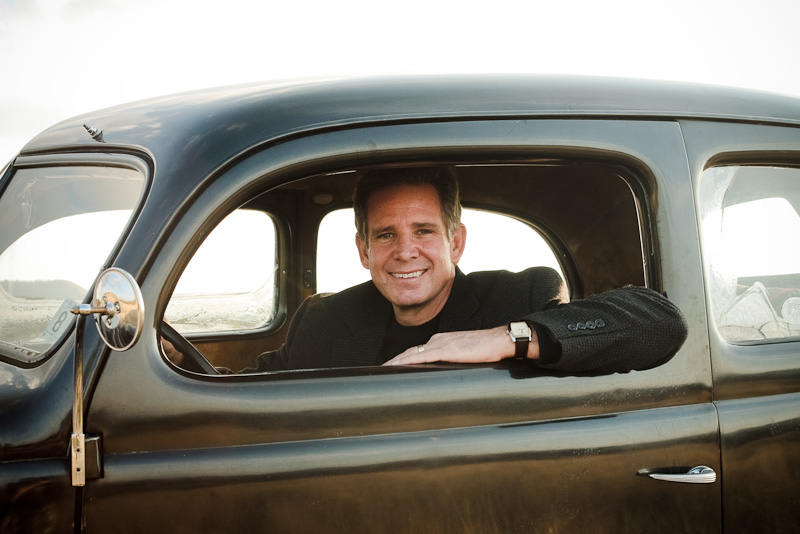
I have lived a life of always trying to do my best. I think this quest came from my parents and their insatiable desire for excellence. It’s one of the things I love about America, as so many believe in excellence and in doing their best. This is true of a broad range of audiences, both in our private and public lives, individuals and collective groups who subscribe to a high personal standard. What did most of us hear from our parents? “A job worth doing is worth doing well.” I can still hear my father’s words ringing in my head, and maybe you hear a similar tune as well.
More than 25 years ago I had an esteemed, respected colleague ask me if I felt I had ever done my best. It seemed an odd question, so I asked him to clarify. He immediately offered that he wasn’t sure if he had ever done his best and then proclaimed his desire to someday reach that standard of excellence. I remember feeling a bit befuddled because I saw him as a person of high achievement. I have remembered and pondered his question to this day.
For the first 20 years of my career, I would often wonder, “What is my best and did I just do it?” After I would achieve a particular goal or target I would fall into the trap of quickly measuring myself against what “could have been.” This thought process robbed me from my feelings of achievement and the joy of celebrating my success. It’s almost like success was always just around the corner and I could never quite measure up or reach its’ destination. There were moments when I would consider for days how I could have improved the result. Taken too far, this kind of thinking can lead to feelings of inadequacy and a sense of never being good enough. I hate to admit it, but I fell into this punishing thought process for many years.
Maybe you have done this too. I have detected this kind of thinking with top performers and those driven by high expectations. They are constantly reaching for higher ground and demanding achievement and yet, it’s never good enough. Driven athletes and entrepreneurs, business owners and goal-riveted sales and business professionals are common victims who often fall prey to this mindset. But I think this condition affects far more than we might admit. In fact, maybe you can personally relate to this punishing behavior. I can.
Consider your various life roles as a parent, student, co-worker, community leader, volunteer or accomplished professional. You might find yourself affected by this same thinking. Sometimes our church cultures can even breed a kind of “beating yourself up” attitude. Those that beat the drums of immediate perfection negate the atonement of Jesus Christ and its role over time in helping purify and sanctify our lives. Line upon line, precept by precept we will eventually get there…but it will take time. I am confident our Heavenly Father and Savior are more concerned with where we are going than where we are.
Many years ago, a personal business coach defined for me a thought process he called, “gap thinking.” To teach me this concept he shared the following illustration that I have never forgotten.
He posed an inquisitive question:
“If you stand on a beach and look out across the ocean, what do you see? “

Being from Southern California, this was not a difficult question to answer. “Beautiful blue water, breaking waves, random surfers, boogie boarders, lazy swimmers and a few crisp water craft cruising by.” I thought.
“But farther out, what do you see?” he pressed.
“I see the western horizon.” I replied.
He continued, “Now, let’s suppose you were standing on the shore with a friend. You explain to the friend that you want him to paddle a row boat out to the horizon, while you stay on shore. While he paddles toward the horizon, you communicate with him via cell phone letting him know, from your shore-line perspective, exactly the point when he arrives. As you see him arrive at the horizon, you tell him to stop.”
“At that point, you instruct him to drop an anchor and tie off a bright colored buoy at the exact spot you viewed him at the horizon. You then ask him to quickly return to shore. Upon his return, you make one more request. You kindly ask him to take you to the horizon. A little puzzled, he paddles you west until you arrive at the previously placed anchored buoy.”
My business coach then asked me another question,
“As you moor to the buoy, you look west again and what do you see?”

“I see another horizon!” I replied.
My mentor explained to me that the distance between the first horizon (buoy) and second viewed horizon is “the gap”. When we work hard to achieve a goal or important milestone in our lives, we have been aiming for the first horizon. When we complete the goal, we have arrived at this destination. Our whole effort and struggle has been focused on reaching this end.
Here is where we can make a big mistake. When we arrive at this new location, instead of celebrating and enjoying the moment, we sometimes make the fatal mistake of immediately looking toward the next horizon and somehow conclude that what we have just accomplished isn’t good enough or that we have fallen short. We might even minimize what we have just accomplished and think,
“We won the league, but should have gone undefeated!”
Or, “I got a B in my Math class, but I should have gotten an A!”
Or, “I hit my goal, but I should have exceeded it by so much more!”
Maybe in reality, if some additional effort was expended, that undefeated season “could have been” obtained. But who wants to live in the world of “could have been?” The better approach would be to enjoy the great achievement of league champs and then set a new goal of going undefeated the next year. There is power in celebration and in allowing ourselves to feel the feelings and emotions of accomplishment and reward. This is fundamental to increasing one’s confidence to tackle more difficult horizons. The message is to not get the first horizon confused with the second. Staying focused on the first horizon keeps you effectively, “out of the gap!”
We have problems when we immediately measure our own performance and successes against the second horizon. This has spoiled my sense of achievement on many occasions. The taste of victory has been soured when I concluded that it “could have been” sweeter if only I had done this or that . . . When I stood on the shore I couldn’t see the second horizon and yet, when arriving at the first, I subconsciously shifted my original objective and measured it against the next horizon. This is called “living in the gap!” It’s a terrible place to be.
Are you or have you ever lived in the gap?
Have you been guilty of gap thinking?
I’ve seen accomplished friends and professionals do it time and time again. Heck, I’ve done it time and time again myself! They work hard all year to hit a certain worthwhile target, only to spoil it by punishing themselves with “could have been” language and imagery. The terrible problem with gap thinking is that you can never win. By measuring your life against the second horizon you can never succeed. You are always chasing a moving goal post.

Now this doesn’t mean that a meaningful “start, stop and continue” exercise should not be conducted at the end of each task, contest or project. Pausing after each achievement to evaluate our progress and set new goals is time-tested wisdom. But to punish ourselves or to beat ourselves up for not doing more based on a 12th hour, 4th quarter shifting of the target is self-limiting and frankly abusive to our very souls and inner selves. It fails to recognize the power of the process of improvement by rather focusing on a single destination.
Let me just share 5 brief insights that can help us, “stay out of the gap.”
Cast your Vision into the Future – Proverbs says, “Where there is no vision the people perish.” Continue to cast your eyes into the future, to the horizons in your life setting meaningful goals. You can do it and you are good enough!
Become a Lifetime Goal Cultivator – Make the goal setting process an experience that you cultivate repeatedly. Believe that your future is always bigger than your past and you will live a life of abundance rather than scarcity.
Work Diligently to Achieve Your Goals – Work hard to achieve what’s important to you. Olympic swimmers have long learned that to break pace by looking into another’s lane can cost them the prize. Don’t compare yourself to others. Just keep your head down and diligently work toward what matters most.
Celebrate Your Accomplishments – Take the time to pat yourself on the back. Celebrate those special moments and feel buoyed up in what you have done. These are the building blocks of increased confidence. Even if you miss the target you are further ahead than when you started. Be encouraged in the progress you have made and then commit to fight another day.
Second Horizon Warnings – Don’t measure your life against the second horizon or engage with those who would draw you in with punishing language about what could have been. Be happy about the progress you have made, casting your eyes across the sea to the next horizon.
Having learned this principle many years ago, I am working to eliminate gap thinking and identify its self-destructive behavior when I see it. This conscious shift has created such a difference in my life and I hope it will make a difference in yours.
Life is often expressed as a peak to peak experience. I would suggest that rather than peak to peak, life is a “horizon to horizon” experience. As you move forward, “stay out of the gap;” your progress and achievements will be so much more rewarding.
Enjoy the journey!









 I am just a guy who loves life, my wife, my family, my God, and my country. I want to pay it forward and make a positive contribution inspiring others to make great life decisions.
I am just a guy who loves life, my wife, my family, my God, and my country. I want to pay it forward and make a positive contribution inspiring others to make great life decisions.